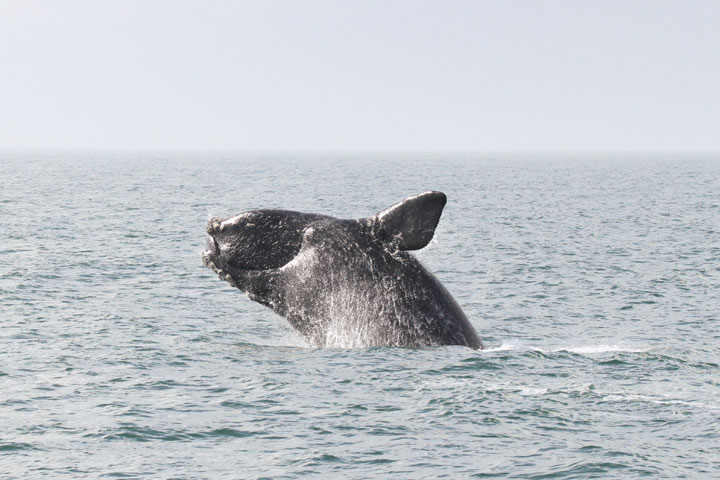There are about 525 North Atlantic right whales left in the world. At least 10 have died off the coast of Atlantic Canada in the past two months.

On Monday, animal advocacy and conservation group Marine Animal Response Society (MARS) said three more decomposed carcasses were discovered.
The Department of Fisheries and Oceans has called the deaths “unprecedented.”
READ MORE: Biologists looking for answers in death of endangered right whales
MARS director Tonya Wimmer explained that the number of deaths is “very concerning.”
“We’ve never had this many right whales die off in one season.”
Wimmer said there are potentially more whales that have died and haven’t been found, and there may be more deaths to come. Here’s a look at the plight of the whales.
WATCH: Untangling a right whale in the Bay of Fundy

What are North Atlantic right whales?
The North Atlantic right whales — with a lifespan of about 75 years — are one of the most endangered large whales in the world, according to the Department of Fisheries and Oceans. They’re mostly found on the Atlantic coast of Canada and the U.S.
The massive mammals can reach up to 18 metres in length and can weigh 96,000 kilograms, according to the World Wildlife Fund (WWF).
Whales are travelling to the Gulf of St. Lawrence
The whales had been living in Bay of Fundy and Roseway Basin waters until about five years ago, but Wimmer says they recently began appearing in the Gulf of St. Lawrence.
She explains that this is likely because Bay of Fundy “food isn’t great,” but the exact cause — and whether it’s related to climate change — is still being researched.
“How a warming ocean will impact them is quite unknown at the moment,” Wimmer says.
WATCH: New census aims to get numbers on northern whale population

The change in location is significant because conservation efforts, such as rerouting shipping lanes, were carried out mainly in the Bay of Fundy.
Whales likely died due to ‘human activity’
The whales, the first death of which was discovered on June 7, were likely killed because of “human activity,” Wimmer said. While it’s unclear exactly what it was at this point, ship accidents, fishing gear and pollution can all be harmful to the mammals.
READ MORE: Deep diving drones search for endangered right whales off East Coast
She added that preliminary autopsies done on the animals found that three died of blunt trauma and one of chronic entanglement.
The cause of death is unknown for other whales, and it can often be difficult to discern since whales decompose quickly, Wimmer noted.
What can be done to prevent the deaths?
“The main thing that has to happen now is a real, collaborative effort,” Wimmer says, adding that the government, conservation groups and scientists all have to work together to address the issue.
WATCH: Funeral held for man killed during whale rescue operation

She adds that the massive mammals are not reproducing quickly, only five calves have been born this year, which increases the pressure to save the existing whales.
Biologists are currently working to figure out how more deaths can be prevented.
The fisheries department dispatched aircraft and Canadian Coast Guard vessels to locate, tag and get biological samples from the dead whales in June.
WATCH: Government imposes new safeguards for right whales

In an email to Global News, the department said it is considering several actions to prevent further deaths, such as closing the area to fishers, increased surveillance to monitor whales, and allocating funds from the Oceans Protection Plan to protect the mammals.
In order to prevent collisions between ships and whales, they are also considering a “real-time whale alert system for mariners,” and asking shippers to move slowly through the area.
— With a file from the Canadian Press
- Honda expected to announce Ontario EV battery plant, part of a $15B investment
- Trudeau says ‘good luck’ to Saskatchewan premier in carbon price spat
- Canadians more likely to eat food past best-before date. What are the risks?
- Hundreds mourn 16-year-old Halifax homicide victim: ‘The youth are feeling it’















Comments